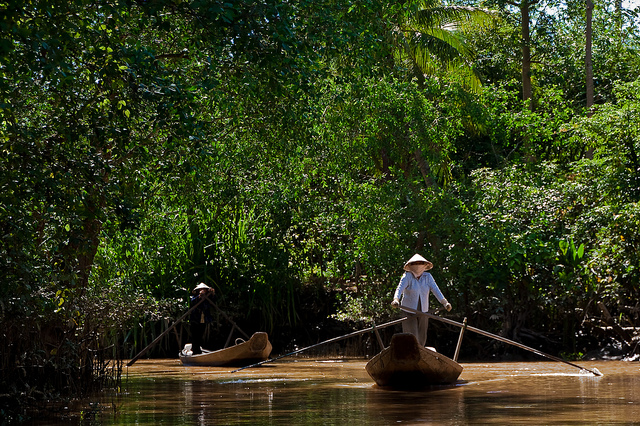May is the start of the rainy season in Vietnam. Although heavy rains are often necessary to replenish the soil and renew the land, they also pose serious flooding risks that ultimately disrupt many livelihoods and leave people in a precarious position. Just this week, a cyclone wreaked havoc in Vietnam’s Lao Cao province, uprooting more than 100 trees, inundating the land and blowing the top off of 35 homes. According to Prevention Web, Vietnam ranks 4th of 162 countries in flood risks, 10th of 89 countries in cyclone risks and 12th of 76 countries in tsunami risks.
Needless to say, we at VNHELP are very concerned about Vietnam’s impoverished communities’ ability to manage and recover after natural disasters, so it was with great interest that we read through this new article on Reuter’s AlertNet about mangroves and managing disasters.
According to the article, mangroves, which are a type of tropical forest, can effectively soften the destructive impact of powerful storm surges, sparing local communities from much tragedy. Citing the United Nations National Environment Programme, the article notes that “a wave’s energy can be reduced by 75% if it passes through 200 meters (600 feet) of mangrove forest.”
What’s even more exciting about these findings is that the planting of mangrove forests to combat natural disasters can also be a wonderful method of engaging community and generating new income for the locals. Community members actively participate in sowing the forests and later helping the forests become sustainable, coordinating with each other on how to manage resources and plan for development; and community members can also catch some of the crabs, shrimps, mussels, oysters and clam-shells living among the mangrove roots to sell for a profit.
Overall, it’s a fascinating bottom-up initiative that mobilizes the community and smartly adapts to Vietnam’s natural resources. It’ll be interesting to see how this mangrove model can be applied to other parts of the world as well.
Images via Creative Commons: by EU Humanitarian and Civil Protection and Jonas Hansel





